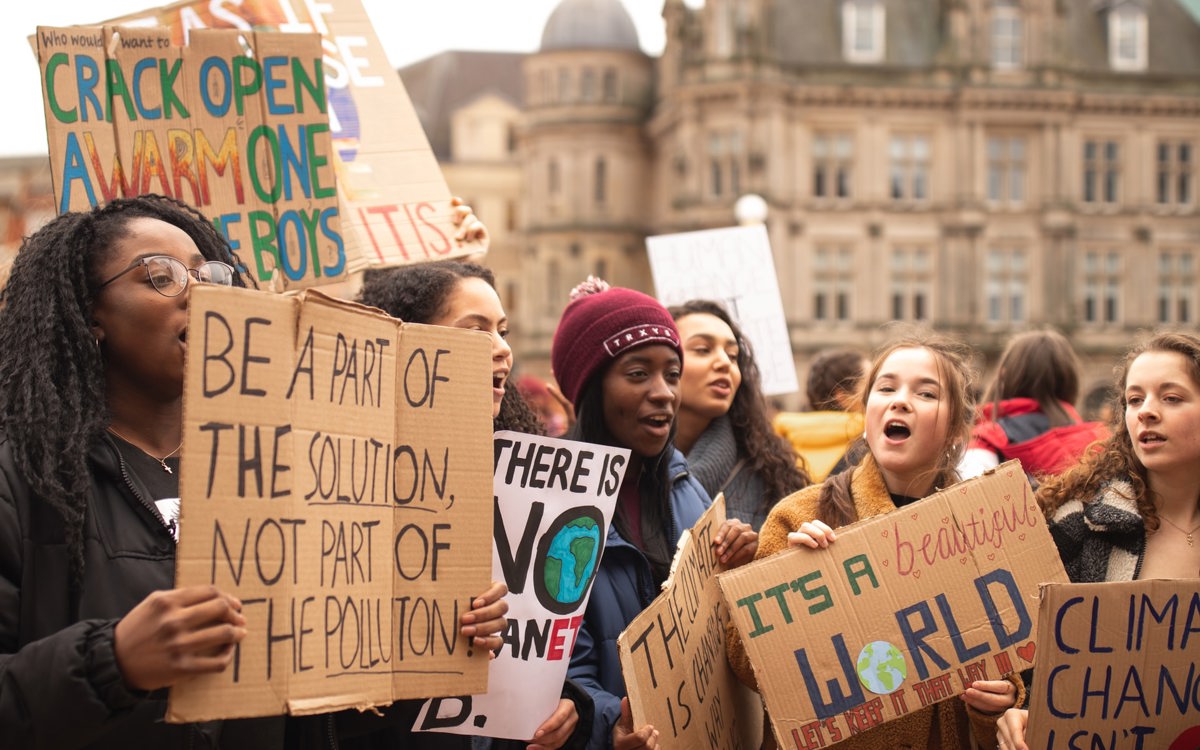How climate change is threatening our mental health as well as our planet. By Catriona Soutar, University of Sydney, Australia, and Grant Blashki, University of Melbourne

From the trauma of disastrous events to our fears for the future, climate change is threatening our mental health as well as our planet.
By Catriona Soutar, University of Sydney, Australia, and Grant Blashki, University of Melbourne
As we weather the COVID-19 global pandemic and the drastic changes it’s brought to our lives, the climate crisis might seem to have taken a back seat. Yet the threat of climate change looms as large as ever. As our planet heats up, scientists continue to track rising greenhouse gases, record-breaking heatwaves, extreme weather, and shifting patterns of rainfall. We know the threat these changes pose to our planet and future, but what is often overlooked is their impact on our mental health.
Mental health is about more than an absence of mental illness. It refers to our emotional resilience, our mental wellbeing, and the complex interplay between the social and psychological factors that shape our welfare. Using this broader understanding of mental wellbeing, university research shows that climate change affects our mental health both in direct and indirect ways.
Mental fallout
The mental health impact of climate change can be seen most acutely in the stress and emotional fallout from extreme weather events. From fires and floods to intense storms, extreme weather events are occurring ever more frequently and intensely in our changing climate. These events, and the devastation they leave in their wake, can trigger mental health problems such as post-traumatic stress disorder, depression, anxiety, survivor guilt, and substance abuse.
In our home country of Australia, the recent severe and unprecedented fires led to the loss of lives, livelihoods, landscapes, and up to a billion animals. When the fires finally stopped burning, individuals, families and communities were left with higher rates of depression, post-traumatic stress, domestic violence, and loss of social capital.
But the impact of climate change isn’t always so sudden. Gradual changes in the climate – such as rising temperatures, rising sea levels, and episodic drought – can alter our natural landscapes. They can disrupt food and water supplies, change agricultural conditions, affect land-use and habitation, and weaken infrastructure. All these in turn give rise to financial and relationship stress, violence and aggression, and can force entire communities from their homes.
The numbers of environmental refugees – communities displaced by environmental change and destruction – look set to soar as climate change takes its toll. Rising sea levels have the potential to displace tens or even hundreds of millions of people, especially from low-lying countries. Already, small island states such as Tuvalu and Kiribati in the Pacific are bearing the brunt of climate change. The mental health consequences of forced migration are severe and well-documented, with high rates of depression, anxiety, and post-traumatic stress exacerbated by barriers to accessing mental health support.
The issues faced by displaced people remind us that the effects of climate change are not equally felt. Climate change increases and amplifies existing inequalities, disproportionately affecting those who are already marginalised in society. This is especially true in relation to mental health. Marginalised groups – including indigenous peoples, immigrants, and people with low socioeconomic status – are more likely to be isolated from social structures and support, and lack the avenues for recovery that may be open to others.
Climate change anxiety
As well as our responses to change in our physical environment, we are starting to learn more about psychological responses to the threat of climate change. Faced with an overwhelming threat of ecological disaster, more and more people are starting to experience despair, alarm, and genuine despondency about the future. Climate change anxiety is an emerging concept that describes this fear for the future world we face.
A related concept is that of solastalgia, sometimes described as ‘the homesickness you have when you are still at home’. Solastalgia refers to the emotional distress caused by environmental change close to one’s home. Feelings of grief and loss in response to environmental change have been observed across the world, and are often experienced particularly strongly by those with a close relationship to the land, such as indigenous peoples or farmers. The Australian bushfires captured international attention, with many around the world deeply disturbed to see images of environmental devastation and Australia’s natural beauty in peril. When expressing their sense of loss and grief, many described feelings similar to physical pain.

Understanding our emotional responses to the threat of climate change is important because they can determine our beliefs and actions. In other words, our feelings may affect how we think about climate change and our own role in mitigating it. While feelings of hopelessness are at times managed by avoidance or denial, they can also be managed by turning to positive action, which may offer a greater sense of control and shared purpose. This approach is perhaps exemplified by the idea of 'active hope', in which we cope with our fears by becoming active participants in bringing about the positive change we hope for.
Young people in particular have expressed their despair and rage at the global inaction on climate change. Catalysed in particular by Greta Thunberg, they have articulated the intergenerational injustice of inadequate action on climate change with school strikes and marches around the world. There is no doubt that young people will bear the brunt of the fallout in a changing world. Mental health issues are also more prevalent in young people than most other illnesses. How the disproportionate impact of both climate change and mental health challenges combined will affect young people is an important area for further study.
A silver lining?
Despite the negative impacts, there may be opportunities for growth that can emerge from the shared challenge we face. The greatest determinant of good mental health and wellbeing has frequently been linked to social connection and relationships. The sense of community and shared purpose that emerges among those seeking solutions can bring positivity and hope, and may be a silver lining in responding to the climate crisis.
The concept of post-traumatic growth also holds important lessons – people who have survived hardship can develop a greater sense of inner strength, closer relationships, changed priorities, and a richer appreciation for life. The phenomenon has been witnessed around the world after natural disasters or crisis events such as the 9/11 attacks, Hurricane Sandy, and the Californian bushfires. During the recent Australian fires, many communities pooled resources and there were outpourings of financial and practical help to those in need. Many experienced a powerful sense of community connection that may not previously have been apparent.
The impacts of climate change on mental health are complex, non-linear, and the subject of increasing study. Our mental health and wellbeing lie at the very core of who we are as individuals and communities. Understanding the effect of climate change on our thoughts, feelings and actions will be a key part of adapting to, and addressing, this greatest of global threats.
Dr Catriona Soutar is Psychiatry Registrar at Headspace Camperdown – a youth mental health centre at the University of Sydney, Australia.
Dr Grant Blashki is Associate Professor in the Nossal Institute for Global Health at the University of Melbourne, Australia, and Lead Clinical Adviser for Beyond Blue.
Image (top): climate change protests by Callum Shaw on Unsplash.
Bushfires image by Julie Goodwin (Untitled, 2009; watercolour on paper; 56 x 76cm; Cunningham Dax Collection) © Julie Goodwin; courtesy of The Dax Centre, Australia.
The ACU Commonwealth Climate Resilience Network brings universities together to share practical expertise and experience of building resilience to climate change and natural disasters.

